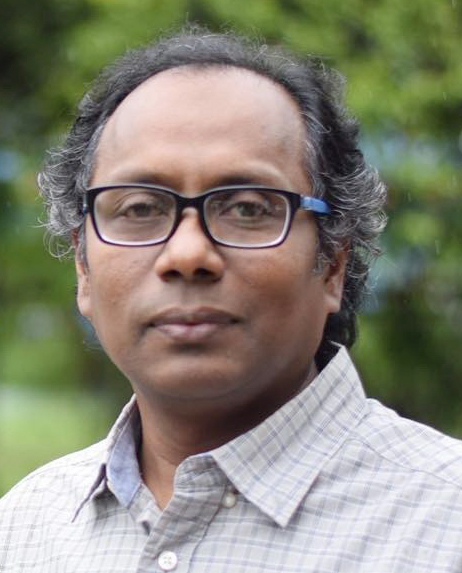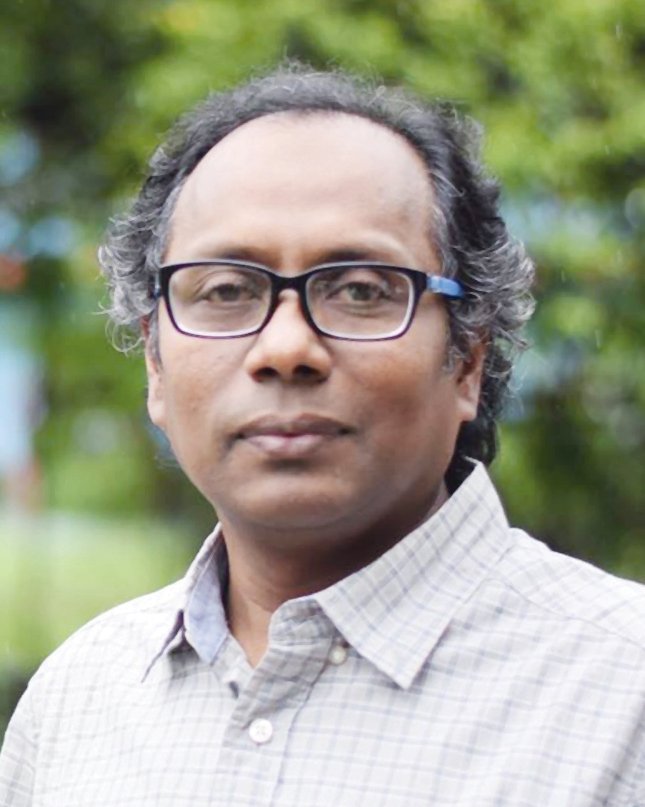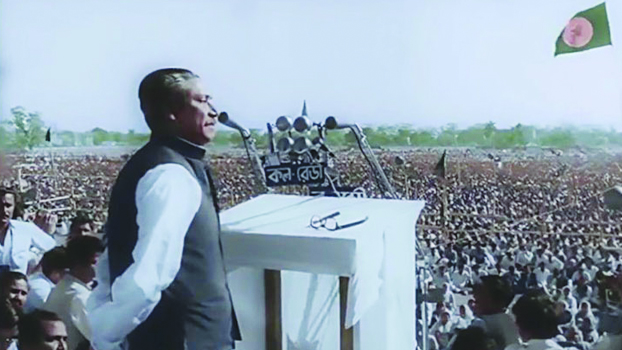Bangabandhu’s last Independence Day speech


When I was involved in student politics in the mid-eighties, there was a lot of criticism about Bangabandhu's second revolution, i.e., the Bangladesh Awami Krishok Sramik League(BAKSAL) scheme. What exactly was BAKSAL? Without knowing the particulars, I found a lot of people criticising BAKSAL. Therefore, I am beginning to have questions about how accurate people's ideas about BAKSAL are.
The Fourth Amendment to the Constitution was ratified on January 25, 1975, signalling the second revolution's start. Following the fourth amendment, Sheikh Mujibur Rahman addressed the House of Assembly. He said, ‘among Bangladeshis, only 5 percent of educated people like us are the most corrupt.We spend a lot of time talking and writing in the newspaper. Today is the day for us to be critical of ourselves. We cannot let this go on for much longer. I changed the constitution today. I want to declare today that this is our second revolution. The new system we will use from now on is a democracy as well. This is the democracy of underprivileged’.
If 1971's Liberation War is deemed the country's first revolution, the BAKSAL Program was the second. While the liberation war achieved geographical independence, there were many obstacles to achieving economic independence later. Anti-national evil forces attempted to sow political instability in the region. In this context, the BAKSAL scheme was adopted predominantly to emancipate the Bangladeshi people economically.
On 26 March 1975, Bangabandhu Sheikh Mujibur Rahman delivered a historic speech in the historic Suhrawardy Udyan. The advertisement of the speech published in the then newspaper was mentioned as 'explanation of the program of Bangabandhu's second revolution'. In this speech, Bangabandhu instructed to temporarily reshape the political and economic system to build a new Bangladesh. This significant political speech was, unfortunately, the last speech of Bangabandhu on Independence Day.
Bangabandhu always wanted the Bengali
nation to live with dignity in the world. He
also uttered similar words in this speech.
In this speech, Sheikh Mujib justifies BAKSAL as, ‘Why did I change the system? I have changed the system to put a smile on the faces of the underprivileged. We have changed the system to restore order. They go to the bank and take cash out, get it signed, just like a freestyle. They went to the factory and demanded money without working. Get signed. It is as if the country has no government.
Bangabandhu did not introduce BAKSAL to consolidate his power. He clarified that clearly in his speech. He said, ‘My brothers and sisters, Bangabandhu was no less powerful even before the system we have in place today. I do not believe power is at gunpoint. I believe that power should be in the hands of Bengalis. The day people say Bangabandhu should leave office, Bangabandhu will neither remain as President nor as Prime Minister for a single day. Bangabandhu was not engaged in politics for power. Bangabandhu entered politics by loving the underprivileged people and to establish a society free from exploitation.Here, we also can see that Bangabandhu entered politics because he cared for the poor and wanted to create an exploitation free Bangladesh.
In the BAKSAL program, Bangabandhu prioritised four significant objectives. He defined that in his speech as, ‘In this regard, we first need to eliminate corruption, secondly increase production in factories and fields, thirdly promote population planning, and fourth is national unity. We have formed one party to foster national unity. Those who love Bengal, and believe in its ideologies, honestly adopt four state principles, may all be members of this party. There is no room for foreign agents, those who take money from external enemies. Government employees can also be members of this party because they are also a part of this nation. To be a member of this party is their right. Every citizen should pull together and contribute to the country from their respective position’.This statement also responds to those who unfairly label BAKSAL as a one-party government. It was indeed the government of the people.
Bangabandhu always wanted the Bengali nation to live with dignity in the world. He also uttered similar words in this speech. He said, ‘My brothers and sisters, a beggar's nation does not have respect. I would certainly not want to lead a nation of beggars. He further mentioned, ‘I want every Bangladeshi farmer brother who does a real job, every gentleman wearing pants and clothes, to go to the land, to grow a double crop. Promise to produce twice as much as a usual crop in honour of the martyrs. If we can grow a double harvest, Insaallah, we will have no deficiency’.
The second revolution was a step towards a socialist Bangladesh with strong economic and administrative reforms, which was unique in nature compared to other socialist countries. The system continued with democratic rights of the people.
The BAKSAL system was to have a multipurpose cooperative for 500 to 1000 families in each village. Under this cooperative’s authority, one-third of the crop produced on the land would go to the landowner, one-third to the cooperative, and one-third to the Government. This cooperative was very instrumental to the BAKSAL system. Bangabandhu particularly requested the young people to work hard to make this cooperative a success. He said as, ‘My young brothers, the people of Bengal will thrive on the co-operatives I am going to establish in the villages. You need to shorten your long pants a little. Leave the pyjamas and wear a lungi. We need to go from village to village and work to make this co-operative successful. I want young people, I want students, and I want everyone in this endeavour.
Under this system, each sub-district was supposed to have an administrative council. Bangabandhu described this council as, ‘Secondly, there will be a council in each thana (sub-district). The board will have a political activist or a government employee as Chair. This thana council will have government employees from various departments. The council will also include representatives from our Krishok Sramik Awami League party, youth representatives, farmer representatives, they will run the thana. There will be no more districts, and all thana will become districts. There will be one administrative council in each thana. The body will have a chairman. All employees will be on the council. There will be people's representation. There will be party representation. They will run the government there – that is how I thought of a system. And I will do it Insaallah. I want your help and sympathy’.
The radical reform of the judiciary was also described in BAKSAL. Sheikh Mujib explained that in his speech as, ‘Bangladesh still follows the British system of justice. It would take roughly twenty years to complete if the case is heard in a civil court. If I become a lawyer, I would make my son-in-law a lawyer and hand the case over to him. The case continues. And if there is a criminal case, it continues for three-four years. This judiciary needs restructuring. I am trying to set up a court of law in each thana (sub-district) and ensure that people get justice within a year or eighteen months.I hope that happens’.
In the context of national and international politics, Bangabandhu adopted the BAKSAL programme towards socialism in Bangladesh. Bangladesh also began to reap the benefits of the BAKSAL. The rise of social and development indicators of that time indicates that fact.
It is debatable if socialism is still important in today's world. Many important aspects of BAKSAL, however, still apply to Bangladesh. Radical judicial reform, the development of a corruption-free society, increased agricultural and industrial production, and national unity remains top priorities for Bangladesh. I firmly believe that if Bangabandhu had not been assassinated on August 15, 1975, Bangladesh could have become a developed country long ago through the BAKSAL programme.
On this auspicious occasion of Bangladesh's 50th anniversary of independence, I pay tribute to all the martyrs who died in the liberation war and our Father of the Nation, Bangabandhu Sheikh Mujibur Rahman. Bangladesh is now one of the world's wonders as a result of their sacrifices. For the benefit of the people of Bangladesh, the Prime Minister Hasina-led government is making quick strides. All the best wishes for Bangladesh.
Dr Abul Hasnat Milton is a poet, columnist, and a public health expert in Australia


